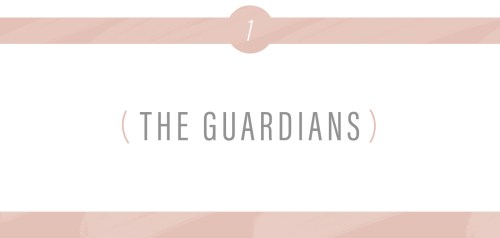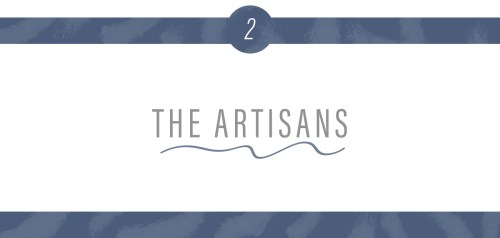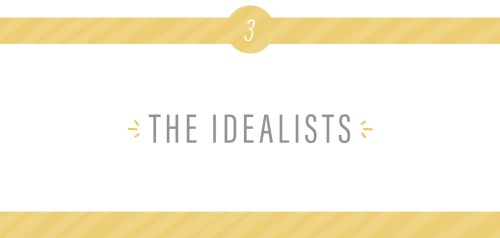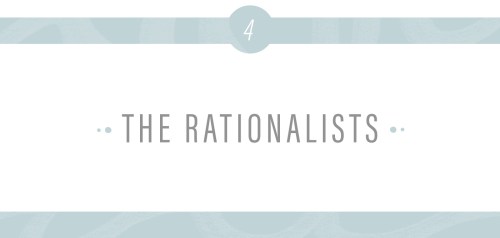Your Myers-Briggs personality type can help you better understand a great many details of what makes you Y-O-U. Whether you’re looking to find love, trying to pin down the source of your burnout, or on the hunt for the best longevity habits to suit your type, the MBTI has you covered. And given how uncomfortable it is to turn into the human manifestation of the awkward turtle meme, using your MBTI to shed light on the question of “why do I feel awkward right now” can be telling and save you from awkward feelings in the future.
Experts in This Article
Molly Owens is the founder of Truity, a company designing user-friendly personality and career assessments for coaches, trainers, and HR professionals.
Good news: Molly Owens, founder and CEO of online personality-test platform Truity, gave helpful hints as to what makes all 16 Myers-Briggs personality types squirm. From dealing with overt emotional displays to being put on the spot and handling public displays of affection, here’s the MBTI answer to your question of “why do I feel awkward?” (Don’t know your type? No worries, read up here.)
The real answer to “Why do I feel awkward?” according to your Myers-Briggs personality type (MBTI)

ISFJ
You know how certain folks avoid conflict at pretty much any cost? They’re probably ISFJs, who feel super uncomfortable with the prospect of hurting anyone’s feelings. “They tend to be wallflowers and can sometimes stumble over their words,” says Owens. They’ll likely skip the inflammatory family dinner conversation—even if they’re Zooming in from thousands of miles away.
ESFJ
“ESFJs are social creatures with a lot of love for routine. They tend to be sensitive and feel most awkward when they think they are the butt of someone’s joke or are not having their feelings in a friendship or relationship reciprocated,” says Owens. TL;DR: If you have an ESFJ in your life, make sure you don’t put any unannounced time on their Google Calendars, and reassure them of their awesomeness often.
ISTJ
ISTJs don’t like sudden movements—and by that, I mean they’re not a fan of announcements like “I’m a hugger!” or anyone who breaks their unspoken code of manners. “Naturally reserved, ISTJs can struggle with emotional displays and tend to feel awkward if they have to veer from rules or set plans,” says Owens. “They may not know how to react to the unexpected.”
ESTJ
You know you’re an ESTJ if you feel uneasy asking to take your company-allocated vacation days. “ESTJs are hard workers, through and through. More than anything, they feel awkward when they fail at work or are reminded of their shortcomings—even though we all have them,” says Owens. Listen, ESTJ—I think you’re doing great. Give yourself a break!

ESFP
“ESFPs are generally outgoing and confident, but they do feel awkward from time to time, especially when they’re forced to introspect or when someone criticizes their decisions,” says Owens. They also may feel out of their element when too much work lands on their plates, or if they’re asked to commit to something with no escape hatch.
ISFP
ISFPs feel the most awkward when they’re backed into a box and told they “have to be” one way. “ISFPs want to live in a way that feels true to their values, and they like to make spontaneous decisions. They feel most awkward when restricted, when they can’t express themselves, or when they become the center of attention,” says Owens. You like to do things your way—and anything else will make you feel antsy.
ESTP
ESTPs are the charmers of the MBTI—but that doesn’t mean they don’t have moments of discomfort. “When they do [feel awkward], it’s likely because they’ve been asked to share their deeper feelings, or when they commit to things they later regret,” says Owens. In other words, that love-interest who’s locking you into a situationship might just be an ESTP.
ISTP
“ISTPs like to live unconventionally, and they tend to clam up when people question their choices or force them to verbalize feelings instead of show them. They also dislike conflict and feel weird when their friends fight in front of them,” says Owens. ISTPs definitely prioritize the acts of service love language—and they’ll feel awkward if you try to change that.

ENFP
No one likes rejection, but that’s especially true of ENFPs, says Owens. “ENFPs appear confident, but tend to be sensitive deep down. They’ll feel awkward if they misread a situation and experience rejection, or they aren’t getting approval from those they love,” says Owens.
INFP
INFPs have a unique way of living their lives, and they don’t appreciate you critiquing it. “They’ll feel awkward when someone questions who they love, how they think, or what their goals are—whether that’s starting a business, or traveling the world as a wandering nomad,” Owens says. Your “feedback” is not interesting to them, so keep it to yourself. Okay?
ENFJ
ENFJs are teddy bears who give a lot of love and want validation in return. When their high-five isn’t returned or you don’t say “thank you” to their seventh compliment of the conversation, you’ll make them sad. Just elbow bump them back, fam.
INFJ
“INFJs always want to keep the peace and tend to be private. They’ll feel awkward when they’re in a disagreement (or simply see conflict), or forced into PDA. No grand gestures for this type,” says Owens.

INTJ
INTJs like to be the smartest person in the room—always. When they’re not, expect them to be looking pretty uncomfortable (especially if they’ve made an easily avoidable mistake).
INTP
“INTPs always like having a solution for everything. They will feel most awkward when they can’t get to the root of a problem or don’t know the answer to a question,” says Owens. In other words: If you agree to do a puzzle with INTPs, expect to be sitting down until every last piece is in place.
ENTP
ENTPs tend to hide their feelings with clever comebacks—and feel really awkward when it finally comes time to spill. “ENTPs tend to have a quick-witted comeback for everything, but they’ll feel most awkward when they’re forced to be serious—like needing to articulate feelings to someone special,” says Owens.
ENTJ
“Tacticians and leaders, ENTJs hate making mistakes,” says Owens. “They might be embarrassed or uncomfortable when they make an error in judgment or need to face a failure.”
Oh hi! You look like someone who loves free workouts, discounts for cult-fave wellness brands, and exclusive Well+Good content. Sign up for Well+, our online community of wellness insiders, and unlock your rewards instantly.
Sign Up for Our Daily Newsletter
Get all the latest in wellness, trends, food, fitness, beauty, and more delivered right to your inbox.
Got it, you've been added to our email list.











